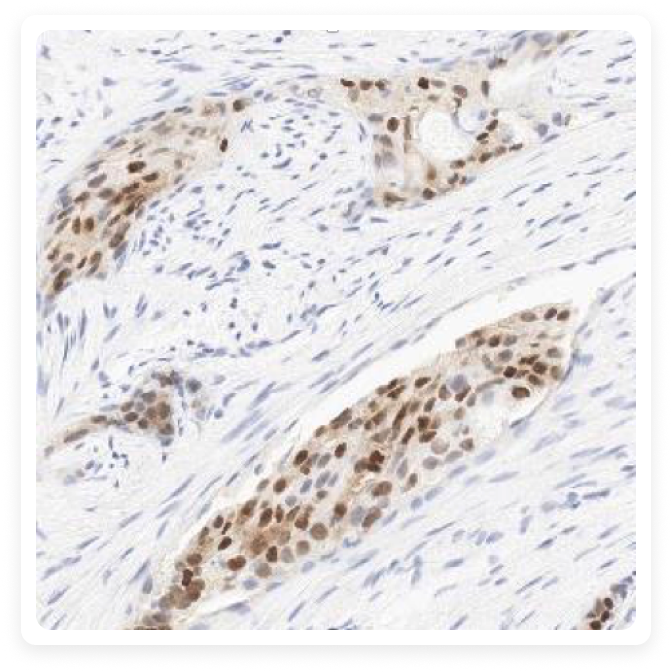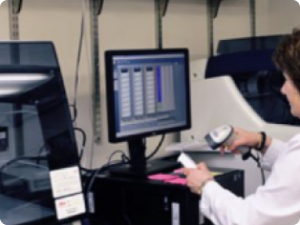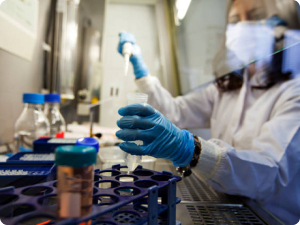Transforming Spatial Biology With Next Generation Immunohistochemistry Using AI
Our core platform technology virtualizes the IHC process to predict biomarker expression spatially and quantitatively, transforming this 24+ hour process into mere seconds
Our technology virtualizes the IHC process using AI deep learning to predict biomarker expression spatially and quantitatively. Using our platform, we are able to train an algorithm to each biomarker, providing individual per-cell prediction of biomarker expression. This can be done for any biomarker, any disease area, and any species.
Virtual Biomarker
Example: Invasive Ductal Carcinoma, Positive for Biomarker ER
H&E Stain, Lab Processed
Expected ER Positive
Physical IHC, Lab Processed
Confirmed ER Positive
Virtual IHC, ViewsML
Confirmed ER Positive
Our AI model achieves 90% concordance with reference to physical IHC by way of cell to cell localization of biomarker expression.
Virtual IHC Allows for
Instant Per-Cell Biomarker Localization
Spatial Biology with Virtual Multiplexing
Virtualization of Clinical Diagnostic Assays
Advantages of Virtual IHC
Virtual IHC eliminates time and cost constraints associated with traditional IHC
Virtual IHC staining preserves scarce tissue samples
Eliminates the use of costly reagents and laboratory infrastructure
Consistent and reproducible immunostaining, every time
Increased use of biomarkers allows for greater characterization of samples
May be trained to any biomarker across any disease type and species











